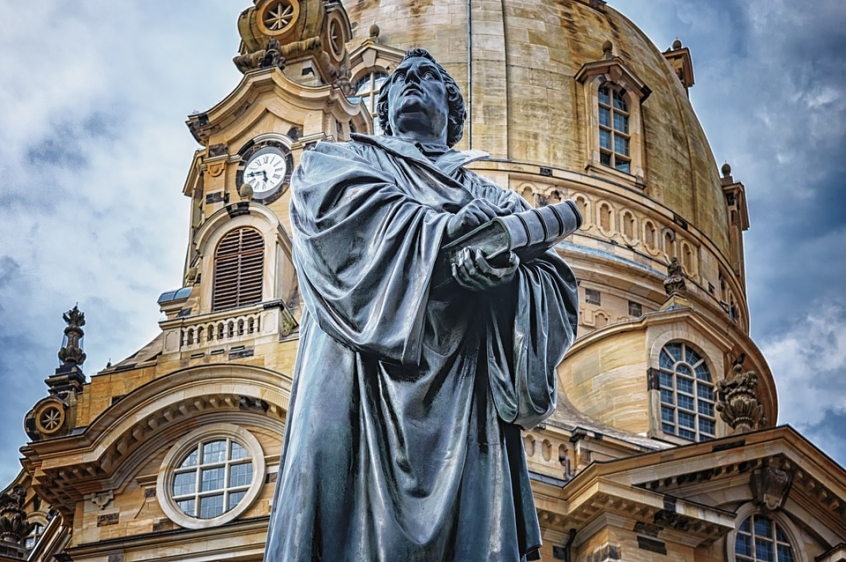Eugene Peterson, the acclaimed author of The Message translation of the Bible, has come out in favour of same-sex marriage, saying that he would perform a same-sex wedding, and that 'that kind of debate about lesbians and gays might be over'.
The response from the conservative evangelical world? In the words of John Piper's notorious tweet when Rob Bell rejected hell: 'Farewell, Eugene Peterson.'

That's largely been the reaction from those unimpressed with Peterson's new statements, made in an interview with Jonathan Merritt of RNS. Influential conservative church leaders like Southern Baptist Russell Moore called the news 'so disappointing', but others went further.
Social media users lamented his outright 'apostasy', accusing him of forsaking Scripture and selling out to culture. Whether serious or not, one Twitter user said it was time to burn every copy of Peterson's The Message that they could find.
While not planning to torch his books, the conservative Christian retailer LifeWay has now said it plans to drop Peterson's catalogue of works from their shelves. A spokesperson told Christianity Today: 'If he confirms he does not hold to a biblical view of marriage, LifeWay will no longer sell any resources by him, including The Message.'
But isn't this all dangerously dramatic? One second Peterson is 'in', endorsed and loved in the evangelical community. But when some brief comments are made on one issue, Peterson becomes a 'false teacher' to be regarded with suspicion. It's not enough to condemn his present thought, he's apparently now undermined everything he's ever written.
Debates about sexuality and marriage are important, and rather like a lifelong union, not to be entered lightly. If we set aside the worthy questions about Peterson's theology and whether it's convincing or not, can a teacher not still be loved and respected as a Christian – even if you think they're very wrong?
Because a cursory glance at Christian history tells us that most of the 'heroes' of the faith were no angels, but their flaws or controversial positions haven't barred them from an honoured place in the Church.
Moses murdered, King David too. Peter thrice denied Christ, and was accused by Paul of contradicting the Gospel – but he wasn't cast out for it, but remained the 'rock' of the Church. The saint and monk Bernard of Clairvaux preached the Second Crusade against Islam. The beloved hymn-writer Isaac Watts was arguably a Unitarian (and thus a heretic) in his later life.
The Swiss reformer Ulrich Zwingli had the Anabaptist Balthasar Hubmaier racked to get him to change his mind about baptism, and the theological giant John Calvin demanded the death of Michael Servetus for denying the Trinity.
The cases of Zwingli and Calvin illustrate a double point: not only was what they did abominable, but it embodies what's wrong with the contemporary evangelical spirit – when someone's theologically 'wrong', then they (literally) might as well be dead.

Church history seems to show you can love and respect a thinker while believing they were seriously wrong on a particular issue. Martin Luther's legacy for the Protestant Reformation is celebrated this year, but his notorious antisemitism isn't.
I'm not equating antisemitism with being LGBTQ-affirming – they aren't morally comparable positions. But evidently Christians have shown that serious disagreement doesn't have to become complete dismissal. In moral terms, the Church is still split on what to say about sexuality. Conflict persists, but we don't have to reach for the torch and pitchfork.
New Testament scholar Preston Sprinkle made the point well in a blog response to the Peterson debacle. He wrote: 'Eugene is a pastoral legend, a prophetic voice in the American evangelical church. And I'm a better Christian because of him.'
But, he added: 'Our celebrity-driven culture has spilled over into the church and hinders us from viewing our heroes of the faithan – ancient and contemporary – as imperfect vessels worthy of praise one minute and critique the next. I still admire the heck out of Peterson. Always will. But I believe he's terribly wrong on this one.'
There's an approach to learn from. Clearly the rightness or wrongness of Peterson's comments is hotly debated. But imagine if you could believe that someone was deeply wrong and still not dismiss their entire life's work? Admit the conflict, but affirm the good as well?
If I shed a tear of lament for every Christian who didn't think like me, I would have a pretty sad life. Division need not mean despair.
Heretic hunting historically hasn't gone well for the Church. Seeking grace and truth, with charity for where we disagree? That looks more hopeful.
You can follow @JosephHartropp on Twitter













